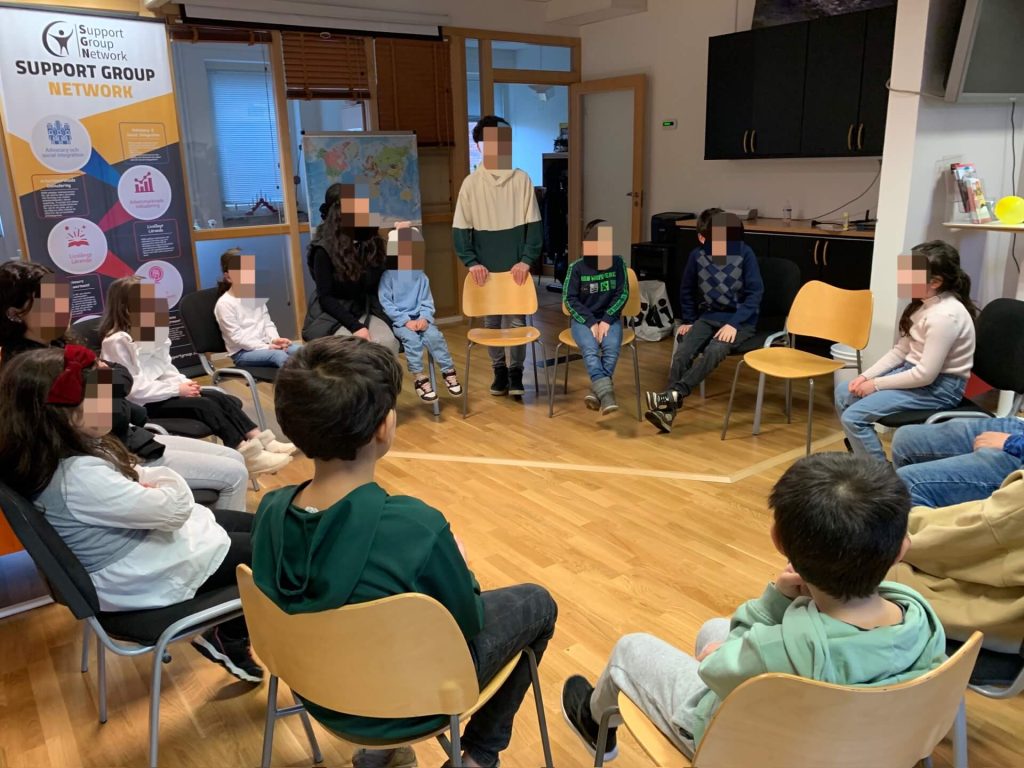This pilot used different fairy tales for the Dialogic Literary Gatherings (DLGs) and mathematics for the Interactive Group (IG). The target group, which involved 15 to 20 children, expressed a keen interest in psychosocial support and educational activities, with children exhibiting strong motivation for educational engagement. Moreover, the parents actively contributed to organising and facilitating activities related to the Successful Educational Actions (SEAs).
Educational activities are designed to ignite children’s enthusiasm for learning and provide them with a nurturing environment for their educational growth by using methods such as MHPSS practices like ‘Right to Play’ and ‘Team Up’ activities. Other programmes and initiatives included ‘quiz walk’ walking in the nearby forest to explore nature and eating together; they focused on academic motivation, social-emotional development, and cognitive skills enhancement. Parents actively collaborated with the centre to help create a conducive learning environment, taking part in the organisation of educational workshops, facilitating discussions, and promoting interactive learning experiences.
